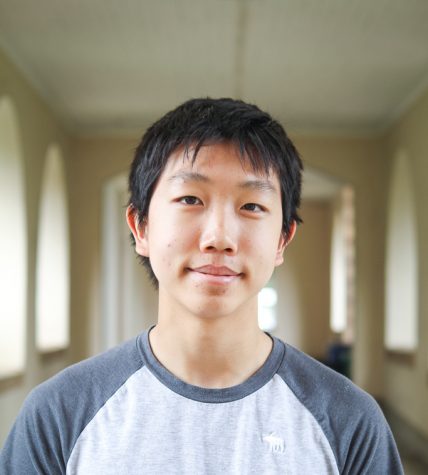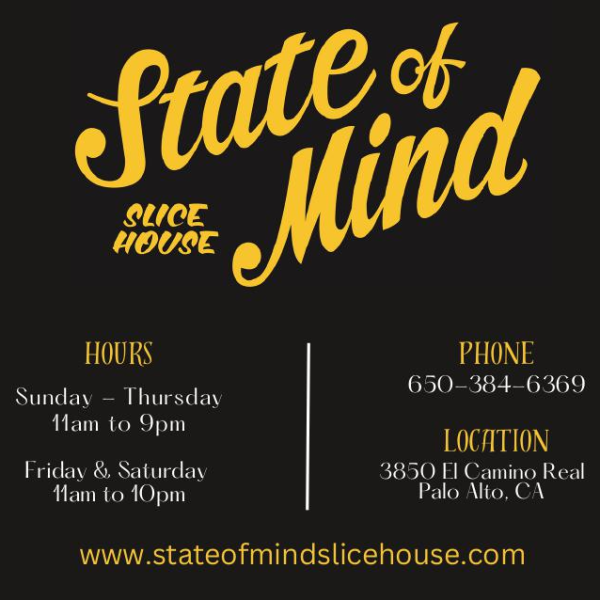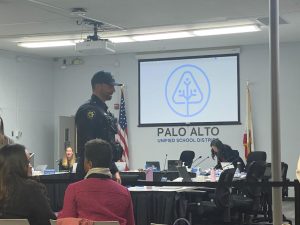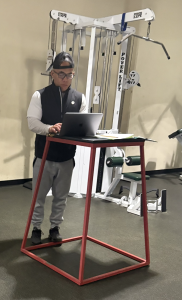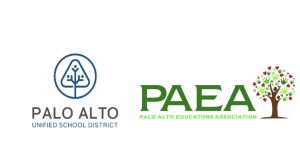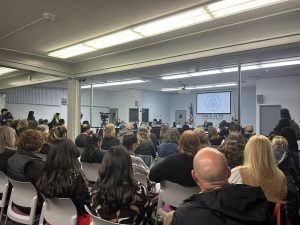School Board Profile: Matthew Nagle
September 9, 2020
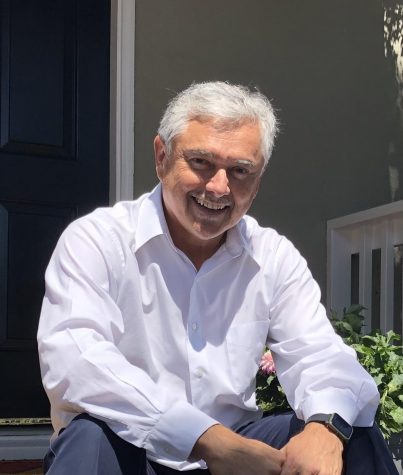
For Matthew Nagle, a graduate student at California State University East Bay and former Juana Briones Elementary School principal, educational inequity has long been a personal fight.
Once his daughter entered high school in 2014 and started taking advanced math classes, Nagle said he could no longer help with her coursework. He could not afford to hire a tutor and barely has the means to afford his son a MacBook. As a Mexican-American with close ties to the East Palo Alto community, Nagle said he is sympathetic to students of color who have it worse and face educational barriers, which have been exacerbated by distance learning.
Now, in a campaign centered around closing the achievement gap and fighting for racial justice, Nagle is making a run for the Palo Alto Board of Education.
Nagle started his education career in 1992 as a teacher, according to his website. He later served starting in 2002 as the principal of Marshall Lane Elementary School and Blackford Elementary School, then at Juana Briones Elementary School from 2009 to 2012.
After he left Juana Briones, Nagle told The Paly Voice in a video interview on Aug. 31 that the Palo Alto Unified School District established an “adversarial relationship” with Latino families that “still exists today.” According to a 2012 article by Palo Alto Online, Nagle made the announcement to step down as principal after his recommendation not to renew the contract of a popular school librarian. Nagle then served as the principal of West Marin Elementary for six years.
He has two children: a son who is currently a freshman at Gunn High School, and a daughter who is a junior at Yale.
While Nagle recognizes the progress that the school district has made from 10 years ago — given culture changes and the resignation of Superintendent Max McGee — Nagle criticized the current board’s treatment of students of color.
“The current board does see our brown and Black students in a damaged, deficit, inferior model,” Nagle said. “I see Black and brown students as capable scholars. And I would hope that all educators would see them the same way and state that, but our educational outcomes for brown and Black students have not been anywhere near the educational outcomes for students who are not in that demographic.”
Nagle also said that the current board is “trying to hide” from the current “state of racism in our school system.” He calls for two surveys: a “racial equity” survey that asks questions about the current state of race relations in Palo Alto, as well as a “racial equity reporting form” which would allow students to report incidents of racial abuse.
“Black and brown students are … nothing more than Smarter Balance Assessment scores to the current board,” Nagle said. “When you survey or engage with any student, you listen to their stories. You find out who they are and what’s important to them. You see them in a different light, rather than just a score. All students are more than a score. My son is more than a score.”
Nagle said that he echoes the sentiment that parents and alumni raised during public comment during the Aug. 25 board meeting, namely that the board has historically neglected to address racial issues and dyslexia and special needs questions. He advocates for bringing special education and the neediest students back for in-person instruction first, following with elementary school students, then secondary school students, which is similar to the school district’s current plans.
To address these issues of inequity however, Nagle said, the district should invest more heavily in educators rather than programs because “programs do not solve our problems; people solve problems.”
“When you look back on your K-12 career, you’re not going to remember the programs,” Nagle said. “You’re going to be remembering the actual people who were in those programs.”
Nagle pointed to his status as a doctoral student studying educational leadership for social justice as evidence of his belief in research-based strategies to increase academic achievement for students. He feels that his experience in the education field and his background as a Mexican-American would add a much-needed perspective to the school board.
“This board doesn’t have the vision of how it should look and where we’re going in terms of going back to school,” Nagle said. “I’m not saying I have all the answers. What I am saying is I’m willing to discuss it openly and transparently and come to community agreements.”
Nagle is one of six candidates running for three seats on the school board. The other candidates are incumbents Todd Collins and Jennifer DiBrienza, and newcomers Katie Causey, Jesse Ladomirak and Karna Nisewaner.


